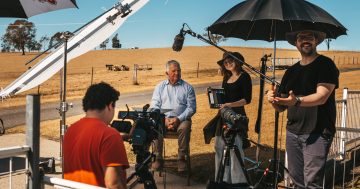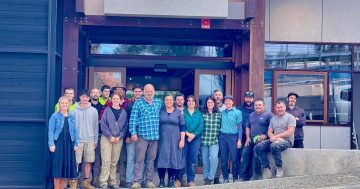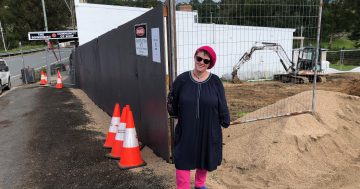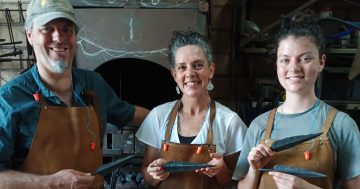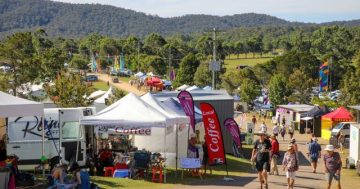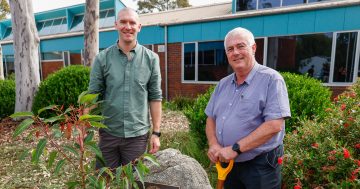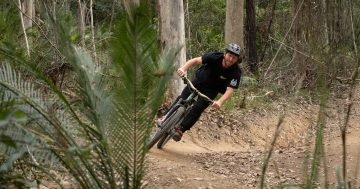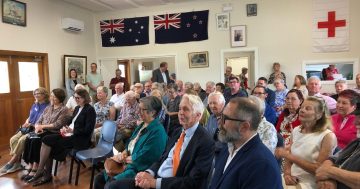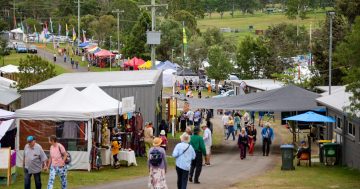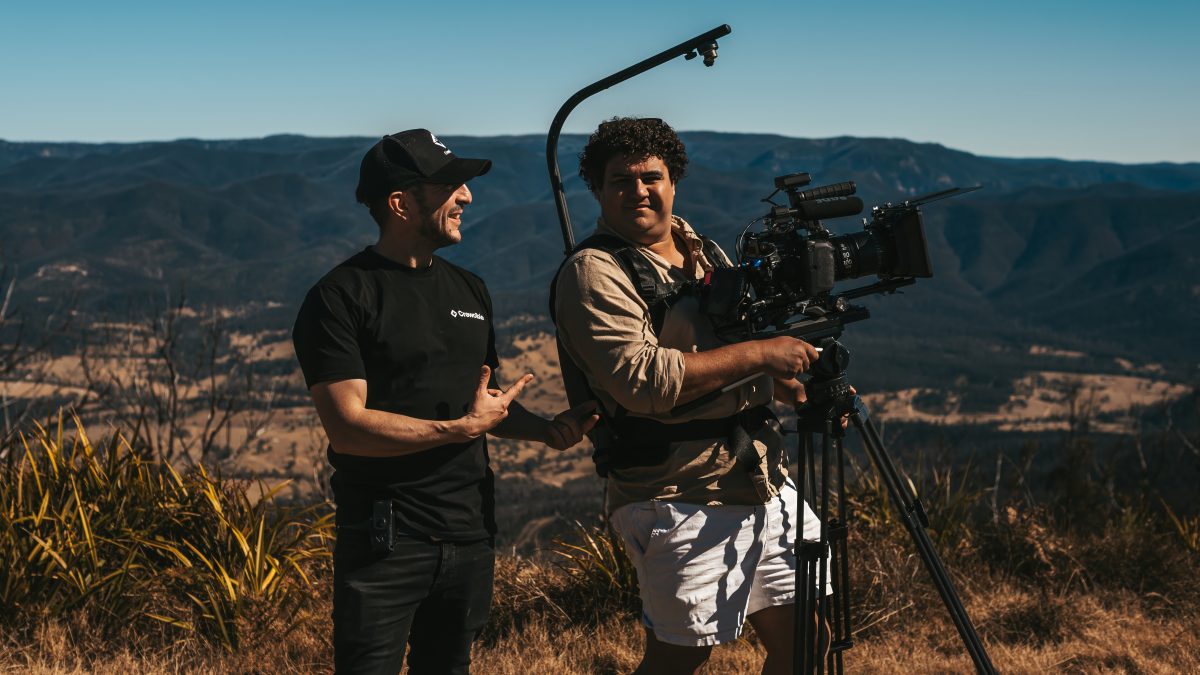
Jimmy Logue’s production company Crewcible is making a feature-length documentary that records the recovery of Cobargo from the Black Summer bushfires. Photo: Supplied.
Bemboka filmmaker Jimmy Logue has taken on a challenging project for his first feature-length documentary, documenting Cobargo’s recovery from the Black Summer bushfires.
He did extensive research to find the best way to tell the story that honours the spirit of the community. The film is educational and reverent, scientific but artistic.
In 2019 Mr Logue found himself first in the path of the Currowan fire and then the Badja Forest Road fire that devastated the Cobargo district. He helped his parents prepare their property just outside Cobargo for future fires.
“I know what pain people went through. It was hard to ask them to relive that on camera, but people were very generous and keen to record their experiences,” he says. His reward is that the historic village’s recovery is being properly recorded and archived. There is a lot to be learnt from the documentary.
“A lot of media focus has been on the tragedy that affected this community. We wanted to focus much more on what the community had learnt and what other communities can learn from what Cobargo went through.”
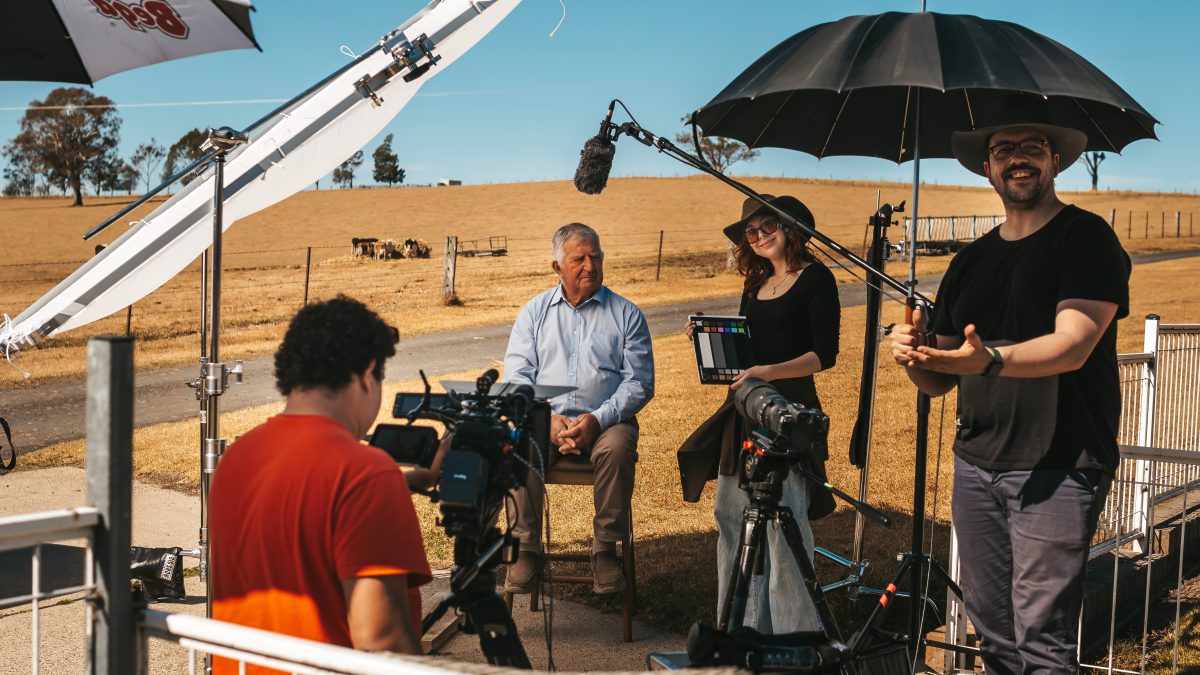
Work on the videos telling the story of the Badja Forest Road fire started in June 2023. Photo: Supplied.
By late 2020, a group of Cobargo people, led by the Ayliffe family, a family with a long history of community leadership in Cobargo, had decided to build the Cobargo Bushfire Resilience Centre (CBRC) as a symbol of hope. Rhonda Ayliffe wanted the CBRC to have a theatrette where people can watch films and documentaries about resilience, recovery and disaster management. She engaged Mr Logue to make a collection of five-minute videos for the CBRC.
The videos tell the story of the Badja Forest Road bushfire, from its ignition to the community response and the rebuild of Cobargo’s main street. While making those videos Mr Logue decided the material was there for an independent feature-length documentary for an international audience.
Mr Logue’s production company, Crewcible, worked closely with Ms Ayliffe, who has a strong vision of how Cobargo should be represented.
“Rhonda wanted to tell the proper story and not misrepresent the community response. We weren’t looking for shock value,” Mr Logue says.
“She wanted to create a theatre experience and knew it had to be something powerful. We had to build trust with the interviewees to feel we were representing them and their stories properly.”
There was also the technical challenge of collecting, documenting and chasing up footage that was being delivered.
“It was filmed on phones, small cameras and large cameras with different levels of skills,” he says.
“Developing a way to put together all that mixed media has been a huge challenge.”
In mid-April, he was still receiving footage from volunteers and freelance camera operators on the ground.
“They have donated their footage because they feel it belongs to Cobargo.”
They enlisted Paul Bissett to develop the story, plus an animator and composer. The documentary incorporates songs from local musicians who wrote songs about the bushfires.
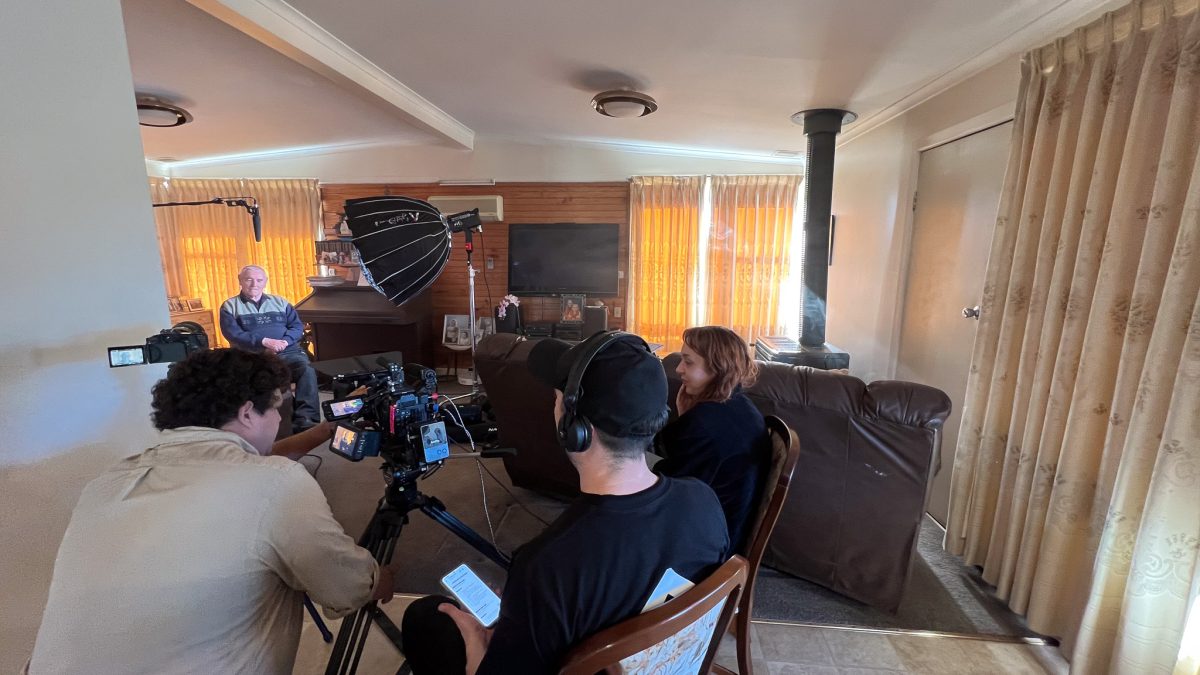
Jimmy Logue says it was hard asking people to relive their pain on camera, but people were very generous and keen to record their experiences. Photo: Supplied.
Mr Logue began work in June 2023. The film was funded by the NSW Government’s Bushfire Community Recovery and Resilience Fund and CBRC.
Ms Ayliffe has an interesting perspective on the project.
She is working on her PhD at the University of Canberra’s Faculty of Art and Design. She keeps a researcher’s eye on everything concerning the CBRC and its videos and documentary.
“The film focuses firmly on how the community got past the fire,” Ms Ayliffe said.
She is delighted that Crewcible understood the brief so well. “We are keen to continue the relationship and create more content with Crewcible that captures the next stage of the recovery – the town’s rebuild.”
Mr Logue has seen incredible resilience while working on the project.
“The local people have stood up and come together to define the next stage of Cobargo, how to recover and rebuild with greater resilience. They are willing to share their experiences of how they have sprung back with other communities.
“We are not saying our story is worth more than those of other communities that lost lives and lost homes in these terrible fires, but I have been given a unique opportunity to look deeper into what happened in Cobargo and how we can learn from it to prepare for the future.”
Crewcible’s film is up for selection to be shown at the Far South Film Festival in August.







